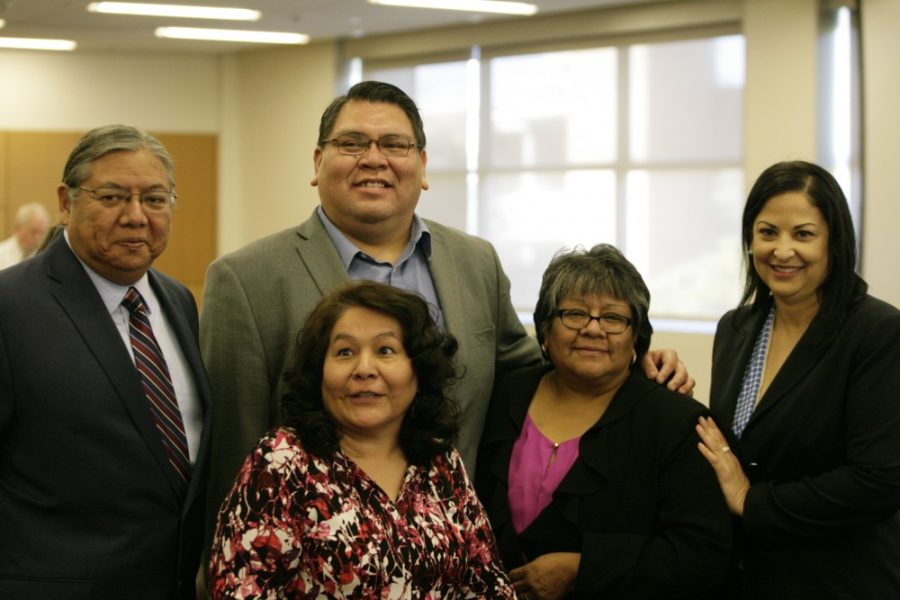TEMPE, Ariz. — The Arizona Board of Regents unanimously moved to approve a revision to its tribal consultation policy today, in hopes of recognizing the importance of collaboration with sovereign Indian tribes.
The policy which was adopted in 2011, initially stated the board’s and universities’ commitment to open, continuous and meaningful consultation, as well as collaboration in design, conduct and dissemination of research.
The revision which was made in response to the Inter Tribal Council of Arizona requesting a single policy reflecting the board’s commitment in November 2012, was made by the board in conjunction with ITCA, university tribal liaisons and tribal representatives.
“We believe this is the new era of working with tribes,” said Maria Dadger, ITCA executive director.
Dadger said everyone needs to respect tribes, their laws, their beliefs and their culture, and that through this process it will be done in the most respectful way, so everyone can continue to learn from one another.
The board, who first read the revision at the September meeting, received letters of support for the revision policy from the Pima-Maricopa Indian Community and the Inter Tribal Association of Arizona.
There are 22 sovereign tribes in Arizona, and while there are only 21 tribes in ITAA and ITCA, Navajo Nation was also included in the consultation process.
Jacob Moore, assistant vice president of Tribal Relations at Arizona State University, said the original policy was just a placeholder, with the understanding they’d go back and consult with tribes to come up with something mutually comfortable and beneficial.
“It is an understanding that this is a consultation policy, there are still issues that we’ll continue to want to address going forward, around human subject research and cultural patrimony,” Moore said.
He said the expectation is to recognize the government-to-government relationship and establish a policy, so they can work together on those important issues.
Regent LuAnn Leonard, who was the first Native American to be appointed to the board in 2008 commended the new policy.
“This is going to be a historic day, we will be the second public university system in the nation to create a policy,” Leonard said.
Around 30 percent of Arizona is Native American land, and this policy respects the culture, traditions, laws and beliefs of the sovereign tribes, according to Leonard.
According to the board’s agenda the proposed policy revision:
- Recognizes and respects the authority of sovereign tribes and is committed to government-to-government relationships with individual sovereign tribes;
- Reflects the commitment of the board and universities to communicate early, regularly, and in good faith with individual tribal governments regarding proposed research, initiatives, agreements, and policies that may have foreseeable implications for tribes and individuals as members of a tribe; and
- Sets forth the requirements and expectations for good faith consultation between the board and universities and tribal leaders and designated representatives.
“This is meant to be productive and meaningful and to establish a framework for a positive relationship to go forward,” Leonard said.
Follow Chastity Laskey on Twitter.









